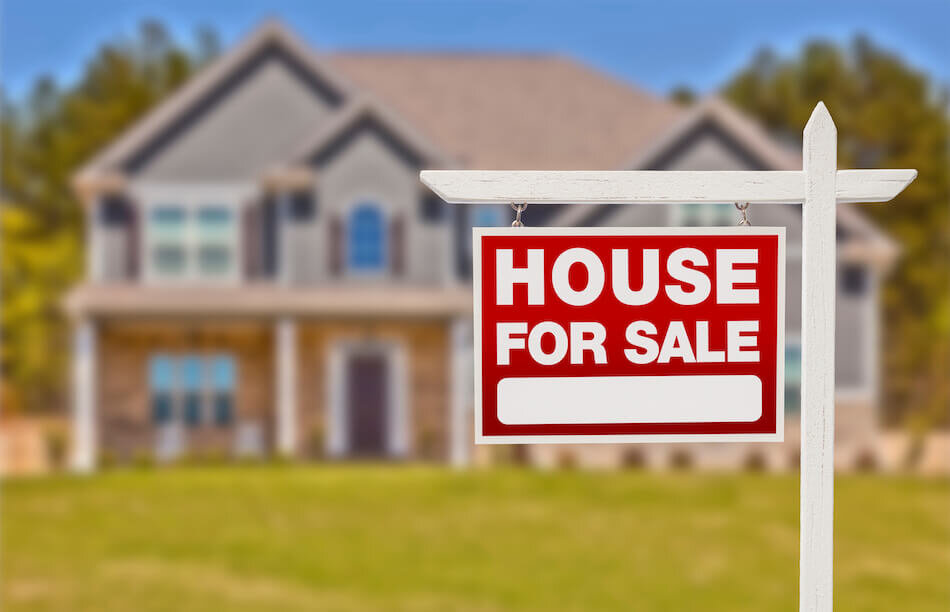 Thinking about selling your house after owning it for just one year? You’re not alone. Life happens fast. Maybe you got a job offer in another city. Or perhaps your family situation changed suddenly, and you need to sell fast.
Thinking about selling your house after owning it for just one year? You’re not alone. Life happens fast. Maybe you got a job offer in another city. Or perhaps your family situation changed suddenly, and you need to sell fast.
The truth is, selling a home this quickly can cost you money. Between capital gains taxes, closing costs, and possible mortgage penalties, the numbers might not work in your favor. But sometimes, you simply don’t have a choice.
Before you put that “For Sale” sign in your yard, let’s look at what really happens when you sell so soon after buying.
For informational purposes only. Always consult with a licensed real estate professional before proceeding with any real estate transaction.
Get a Cash Offer on Your Home With Cash Is King.
Want to skip the hassle of selling your home? We’ll make you a Guaranteed Cash offer. Get started now for free!
Can You Sell a House After 1 Year? 5 Things to Consider
- Is It Possible: Yes, you can sell your house after one year, but it may involve significant financial implications such as higher capital gains taxes.
- Higher taxes: The IRS treats profits from homes sold under two years as ordinary income, which means bigger tax bills
- Agent commissions: Real estate agents typically take 5-6% of your sale price
- Closing costs: Expect to pay another 3-5% in various fees when selling
- Possible mortgage penalties: Some loans charge you for paying them off early
The Financial Hit: What Happens When You Sell Too Soon
When you sell a home after less than a year of ownership, the financial reality can be challenging. The combination of various selling costs, taxes, and fees often means you’ll recover less money than you initially invested. Here’s why most experts warn against selling within the first year.
You’ll Pay Big Capital Gains Taxes on Any Profit
When you sell your house after one year or less, the IRS considers any profit you make as short-term capital gains.
What does this mean in real money terms? Your capital gains get taxed at your ordinary income tax rate—which could be as high as 37%, depending on how much you make! These potentially costly capital gains taxes can significantly reduce your profit.
Compare that to selling after two years, when most homeowners qualify for a huge tax break. Wait those two years, and you can use the capital gains tax exemption of up to $250,000 in profit from taxes ($500,000 for married couples) if it’s been your primary residence.
Let’s make this real with numbers:
If you made a $50,000 profit on your home sale and your tax rate is 24%, you’d pay about $12,000 in tax implications if you sell within a year. Wait until the two-year mark, and you might pay $0 in taxes on that same profit due to the capital gains tax exemption.
That’s a BIG difference in the tax implications of selling early versus waiting!
Watch Out for Mortgage Prepayment Penalties
Some lenders charge you for paying off your mortgage early. These penalties exist because the lender counted on earning mortgage interest from you for years to come.
These fees can be calculated in different ways:
- A percentage of your remaining loan balance (often 2-3%)
- A set number of months of interest payments
- A flat fee
For example, if you have a $300,000 mortgage with a 2% prepayment penalty, that’s an extra $6,000 just to sell your home.
Not all mortgages have these penalties. Check your loan documents or call your lender before listing your home. This one phone call could save you thousands and help you avoid these financial implications.
Selling Costs Add Up Fast
The costs of actually selling your house can eat up any equity you’ve built in the local real estate market.
Here’s what most sellers pay in the selling process:
- Real estate agent commissions: 5-6% of the sale price (That’s $15,000-$18,000 on a $300,000 home!)
- Closing costs: 3-5% of sale price (Another $9,000-$15,000)
- Home repairs and staging: Often $2,000-$5,000 minimum
- Moving costs: Typically $1,000-$5,000 depending on distance
- Prorated property taxes: You may owe these at closing
Many first-time sellers are shocked by how these costs add up. On a $300,000 home, you could easily lose money or just barely reach the break-even point when selling so soon after purchase.
Remember: You probably haven’t built up enough home equity to sell, which makes these costs hurt even more. Your purchase price won’t have changed much, but all these extra costs come straight out of your pocket.
Why People Sell Homes After Just One Year
Most people don’t buy a house planning to sell it 12 months later. But life throws curveballs. Here are the most common reasons homeowners enter the selling process quickly, even knowing the financial implications.
You Got a Job Offer You Couldn’t Refuse
Career opportunities sometimes come with a location change. If you need to sell your house to relocate for work, the long-term financial benefits might outweigh the short-term loss on your home in the real estate market.
When selling for a job relocation:
- Ask about relocation assistance from your new employer
- See if they’ll cover any losses from selling your house
- Find out if they’ll pay for real estate commissions
- Consider keeping the home as a rental if the numbers work
Many companies understand the burden of moving and offer help with selling costs. Don’t be afraid to negotiate this as part of your compensation package.
Money Got Tight (Really Tight)
Financial difficulties force many quick home sales in the local real estate market. Maybe you lost your job. Or medical bills piled up. Or your adjustable-rate mortgage interest jumped higher than expected.
If you get behind on mortgage payments, selling quickly (even for a lower asking price) might be better than the alternatives:
- Foreclosure damages your credit for a minimum of 7 years
- Short sales (selling for less than you owe) hurt your credit score too
- Loan modifications are helpful but not always approved
If you’re facing financial hardship, talk to your lender immediately. They might have programs to help. Housing counselors approved by the Department of Housing and Urban Development (HUD) offer free advice too.
Big Life Changes Happened Fast
Sometimes personal circumstances change overnight:
- Marriage (combining households)
- Divorce (dividing assets or forcing sale of jointly owned property)
- Having children (needing more space)
- Health issues (needing a different layout or location)
- Family emergencies (moving to care for relatives)
These situations often can’t wait two years for the capital gains tax exemption. When family needs or health concerns drive your decision to sell a house, the financial hit may be worth taking.
When Selling Early Actually Makes Sense
Not all quick sales end badly. Sometimes, selling your house after just one year can be smart financially. Here’s when the numbers might work in your favor.
The Market Went Crazy (In a Good Way)
In hot real estate markets, home values sometimes jump 10-20% in a single year, and the average time it takes to sell a home can be reduced by half. If your neighborhood has seen this kind of growth in the real estate market, selling early might make financial sense even after all the costs.
Signs the market might support an early sale:
- Homes in your area selling within days of listing
- Multiple offers becoming common
- Sales prices are consistently above asking prices
- Low inventory of similar homes
Talk to a local real estate agent about recent sales in your area. They can tell you if your market is hot enough to overcome the costs of selling early and help you understand your property tax situation too.
Your Renovations Added Serious Value
Renovating before you sell can sometimes boost your home’s value enough to justify selling early and may help offset potential capital gains taxes.
The renovations that typically add the most value:
- Kitchen updates (but you don’t need a full remodel)
- Bathroom refreshes
- Adding usable square footage
- Creating an open floor plan
- Improving energy efficiency
For example, if you bought a fixer-upper for $250,000 and spent $50,000 on renovations that increased the value to $350,000, you might still profit after selling costs and long-term capital gains taxes.
Just remember most renovations don’t return 100% of what you spend. Kitchen remodels typically return 70-80% of their cost, while bathroom remodels return about 60-70%. Sometimes it’s smarter to sell as-is. You may list for a lower price, but you’ll net higher.
You Need to Sell Fast (and Cash Buyers Can Help)
Sometimes speed matters more than getting the highest price in the real estate market. That’s where cash home buyers come in. Cash buyers can close in as little as 7-14 days, compared to 30-60 days with traditional buyers who need mortgage approval.
The benefits of selling to cash buyers are significant. You don’t have to worry about financing falling through, and you’ll enjoy a much faster closing timeline. Cash buyers typically require fewer contingencies and inspections. You might also avoid making costly repairs since many cash buyers purchase homes as-is. Plus, there’s generally less paperwork and hassle throughout the entire selling process.
Cash buyers come in several forms:
- Individual investors looking for rental properties
- House-flipping companies
- Online “iBuyers” that make quick offers
- Real estate investment companies
If you need to sell extraordinarily fast, get quotes from multiple cash buyers and compare their offers with what you might net from a traditional sale after all costs.
For informational purposes only. Always consult with a licensed real estate professional before proceeding with any real estate transaction.
Bottom Line: Is Selling After One Year Worth It?
Selling your home after just one year isn’t ideal, but sometimes it’s necessary. You’ll likely face higher taxes on any profit, selling costs that eat up equity, and possible mortgage penalties. But sometimes the math works out anyway, like if the local market is hot or you’ve significantly improved the home’s value.
Before deciding, talk to a tax professional, your mortgage lender, and a local real estate agent. Remember, this decision isn’t just about money—quality of life, career opportunities, and family needs matter too. Sometimes taking a financial hit now leads to better opportunities down the road.
Get a Cash Offer On Your Home
No Commission. No Hassle. You pick the closing date.
CashIsKing.com works with cash investors on a daily basis and partners with investors who can deliver quick cash offers on properties of all conditions and locations. Why wait? Get a cash offer from an investor today!
Get a Cash Offer
